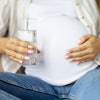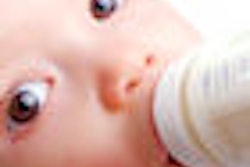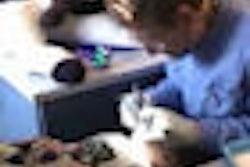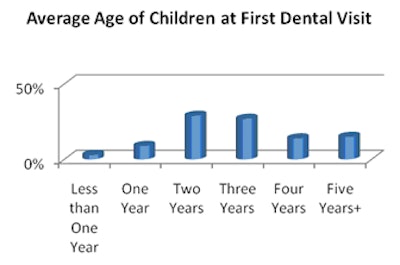
Only 3% of mothers know about recommendations from leading dental and pediatric groups that their children should see a dentist before age 1, a survey by the Academy of Pediatric Dentistry (AAPD) found.
"Oral health is absolutely critical for overall health," said AAPD President William Berlocher, D.D.S., in a press release. "A recent study in the journal Pediatric Dentistry revealed that children who wait to have their first visit until age 2 or 3 are more likely to require restorative and emergency visits, a scary thing for parents of young children."
The AAPD, ADA, American Academy of Pediatrics, and American Association of Public Health Dentistry all recommend a dental visit in the first year.
Among the other findings reported by the AAPD:
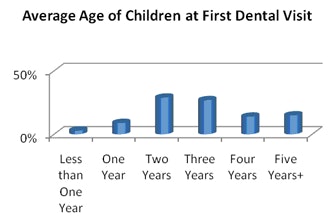 |
| Few mothers take their children to the dentist by age 1. Chart courtesy of the American Academy of Pediatric Dentistry. |
- 33% of the mothers surveyed considered oral health a "concern" for their infants.
- 26% of the mothers surveyed felt that children only need to see a dentist in the case of a serious health problem.
- 14% of the mothers knew tooth decay in children can lead to the need for a root canal.
- 75% of the mothers were aware of the specialty of pediatric dentistry.
- More than half of the mothers have not taken their children to a pediatric dentist.
- 78% of survey respondents said they would take their children to visit a pediatric dentist before their first birthday if they thought the visit would result in better oral hygiene.
- 88% of the mothers surveyed said they were concerned about cavities in baby teeth.
- Less than one-third of the mothers began brushing their children's teeth before the age of 1.
"Parents will be surprised to know that taking children to visit a pediatric dentist by their first birthday actually saves money," Dr. Berlocher said. "Studies show that dental costs for children who have their first dental visit before age 1 are 40% lower in the first five years than for those who do not see a dentist prior to their first birthday."
A total of 400 mothers participated in the survey, which had a margin of error of ±4.9%, according to Jamie Plaxco of the MWW Group, a public relations company representing the AAPD.
Copyright © 2010 DrBicuspid.com
